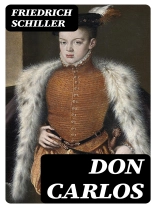Friedrich Schiller’s ‘Don Carlos’ is a powerful exploration of political intrigue, personal conflict, and the tension between idealism and despotism set against the backdrop of 16th-century Spain. Drawing on rich historical and dramatic elements, Schiller employs a mix of elevated language and poignant dialogue, infusing the play with emotional depth and philosophical inquiry. Through the tragic story of Don Carlos, the heir to the Spanish throne, and his relationship with the tyrannical King Philip II, Schiller delves into themes of love, friendship, betrayal, and the struggle for freedom, positioning the work within the Sturm und Drang literary movement, which emphasizes intense emotion and individualism. Friedrich Schiller, one of Germany’s foremost playwrights and philosophers, wrote ‘Don Carlos’ during a time of personal turmoil and broader societal change. His own experiences with the oppressive political climate of his youth, along with his interest in human rights and freedom, profoundly influenced his depiction of moral dilemmas and the quest for justice in the play. Schiller’s deep understanding of human nature and societal structures grant his characters a timeless relevance that resonates with readers. ‘Don Carlos’ is a must-read for those interested in classical drama and the exploration of moral and political philosophy. Its rich character development and philosophical underpinnings make it as relevant today as it was in Schiller’s time, engaging readers in a profound reflection on the complexities of authority and the human spirit.
Про автора
Friedrich Schiller (1759–1805) was a towering figure in German literature, whose impact extended far beyond his own time. Not only was he an accomplished playwright and poet, but he was also a noted historian and philosopher. Schiller’s enriching contributions to literature were shaped by the Enlightenment ideals of human freedom and opposition to despotism. His plays often explored complex ethical dilemmas, deeply entrenched with psychological insights, subsequently influencing the evolution of European drama. ‘Don Carlos’ is one of Schiller’s significant dramas, published in 1787. The play intertwines political intrigue and personal passion, set against the backdrop of the Spanish court in the 16th century. The intense conflict between personal liberty and state power in ‘Don Carlos’ was indicative of Schiller’s engagement with contemporary social issues and mirrored his own humanistic beliefs. Schiller’s style, characterized by its lofty idealism and pathos, has been immortalized through his robust, rhythmically poignant language that simultaneously entertains and educates. His partnership with Goethe led to the iconic Weimar Classicism movement, establishing a literary and aesthetic standard that pervaded German culture. Schiller’s oeuvre continues to be studied and celebrated for its profound impact on the Western canon, marrying his lofty intellectual ideals with a unique dramatic flair.












